Food Biotechnology Lab
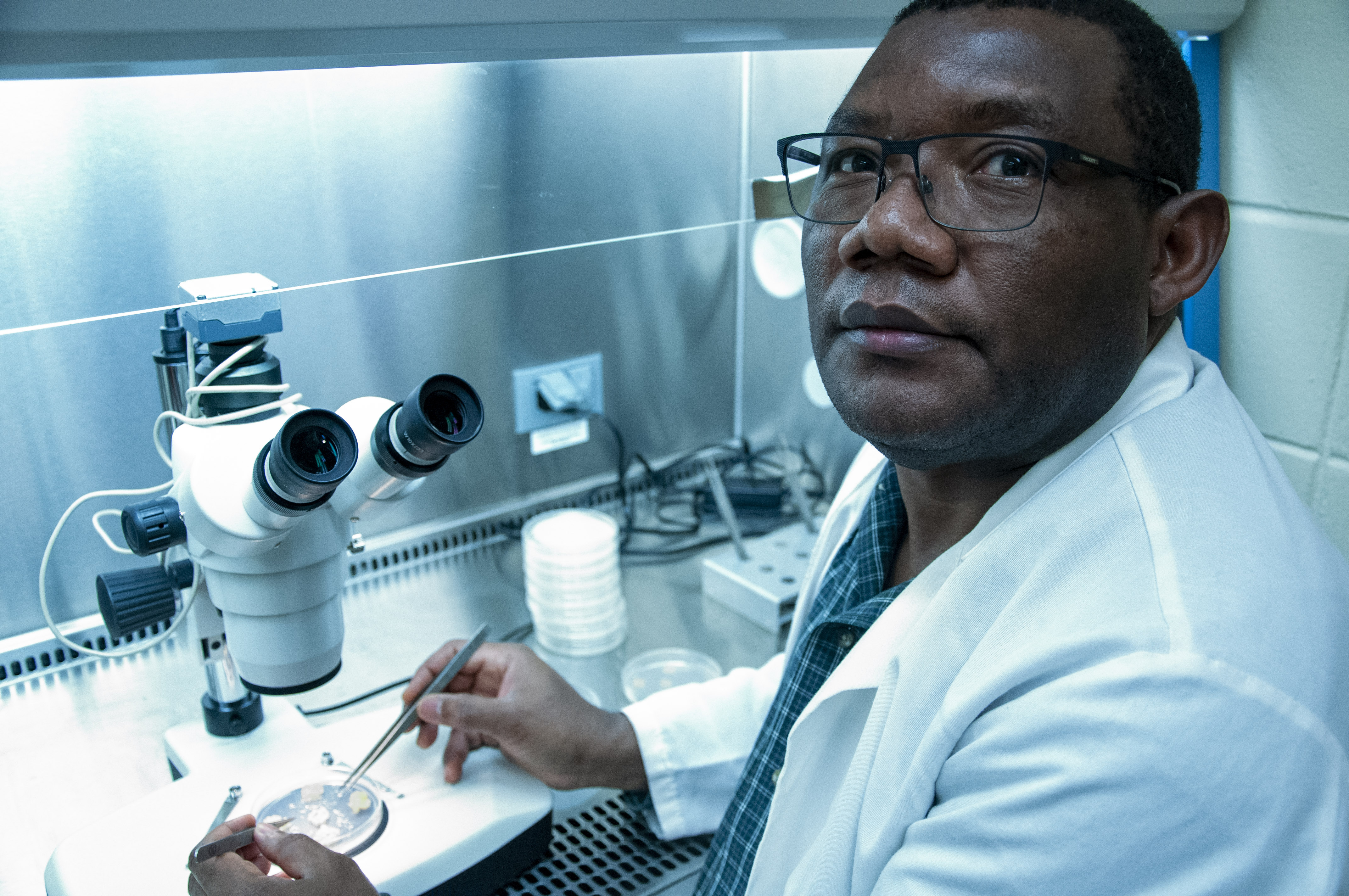
Dr. Bertrand Hankoua’s Food Science and Biotechnology lab is located in the James W.W. Baker Building on DSU’s Dover campus. His research program integrates transformative advances in synthetic biology, systems biology, computational biology, metabolic modeling, gene stacking, genome editing, metabolic and crop bioengineering, and advanced analytical chemistry.
The goals of his research are six-fold:
- To express single or stack multiple nutritional traits (e.g: protein, zinc, iron, vitamins) into economically important staple crops (tuberous crops and cereals) for long-term reduction, alleviation, or elimination of nutrient deficiency
- To dramatically increase cell wall degradability of dedicated feedstocks to dramatically reduce the cost of converting biomass of perennial grasses, tuberous crops, and cereals into biofuels, and high-value biochemicals
- To increase the speed and reduce the cost of producing costly natural drugs such as cancer drugs (eg, taxol), malaria medicine (artemisinin), diabetic (insulin), growth factor (interferon) in bacterial, algae, and plant cells, and tissue and whole plants
- To pursue phytochemistry investigation of natural remedies with proven health benefits to isolate and perform pharmacological evaluation of novel natural drugs
- To establish a set of novel molecular tools, including recombinant DNA, metabolomics, proteomic, and in situ analyzing tools for plant biotechnology that will be shared with the scientific community
- To pursue product pipeline development through crop bioengineering technologies, training minority, underrepresented students in biotechnology, biopharmaceuticals, bio-energy, and capacity development in crop bioengineering methodologies to help developing countries, especially in Africa, mitigate significant technology gaps.

Cassava is a staple crop for millions of people in developing countries. The lab is addressing multi-nutrient deficiency using biotechnology.
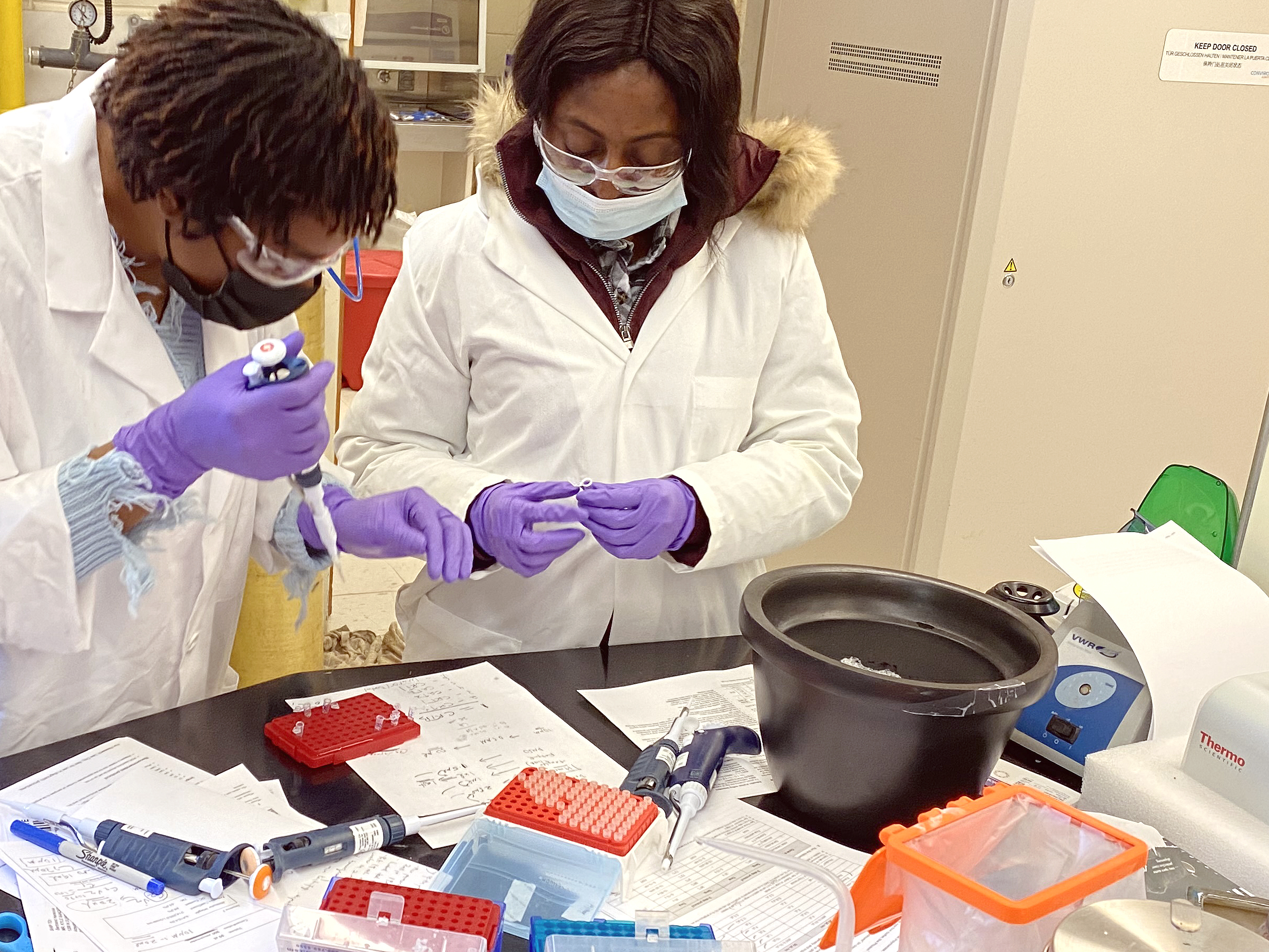
Students conduct research in Dr. Hankoua’s lab
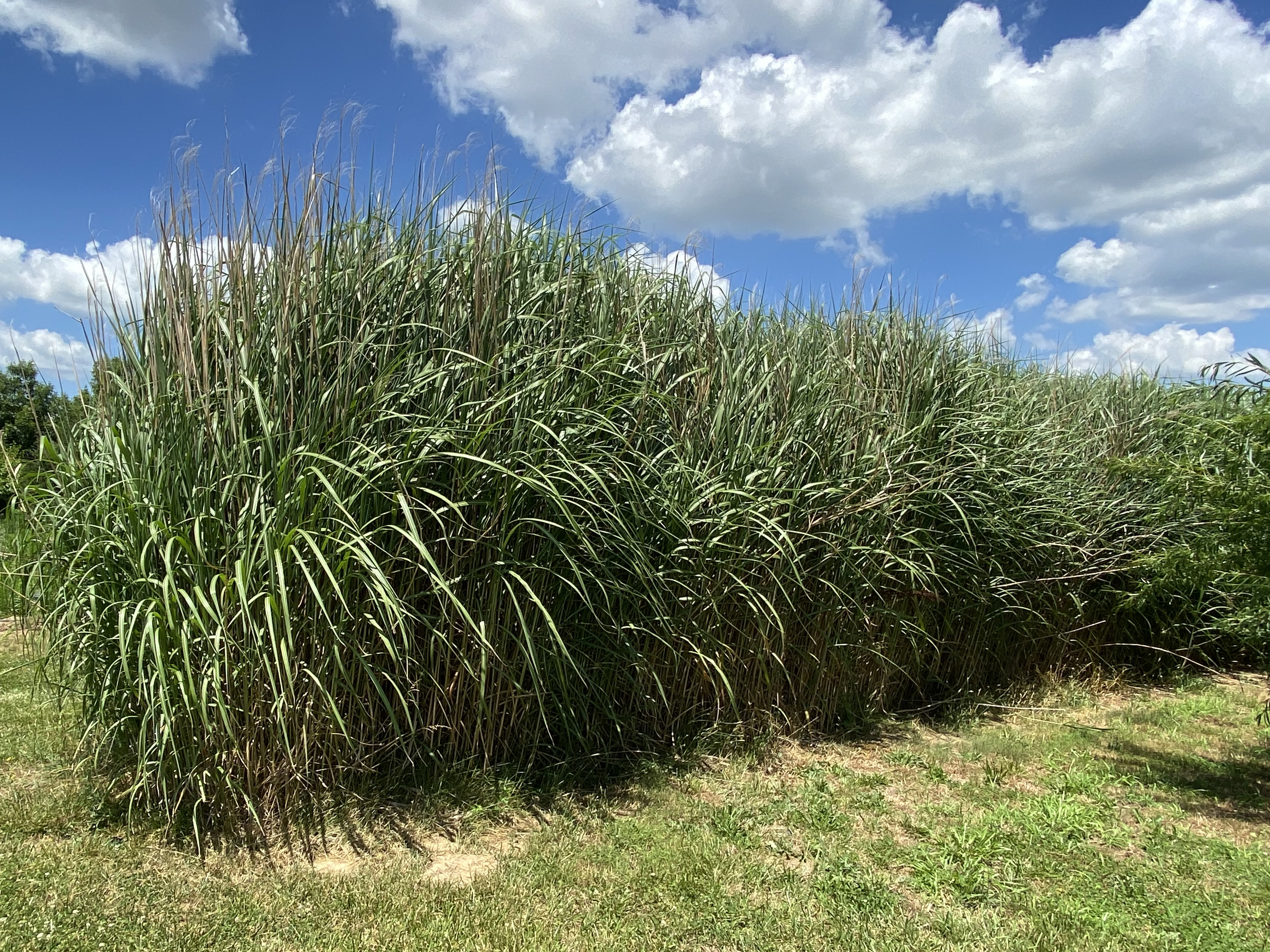
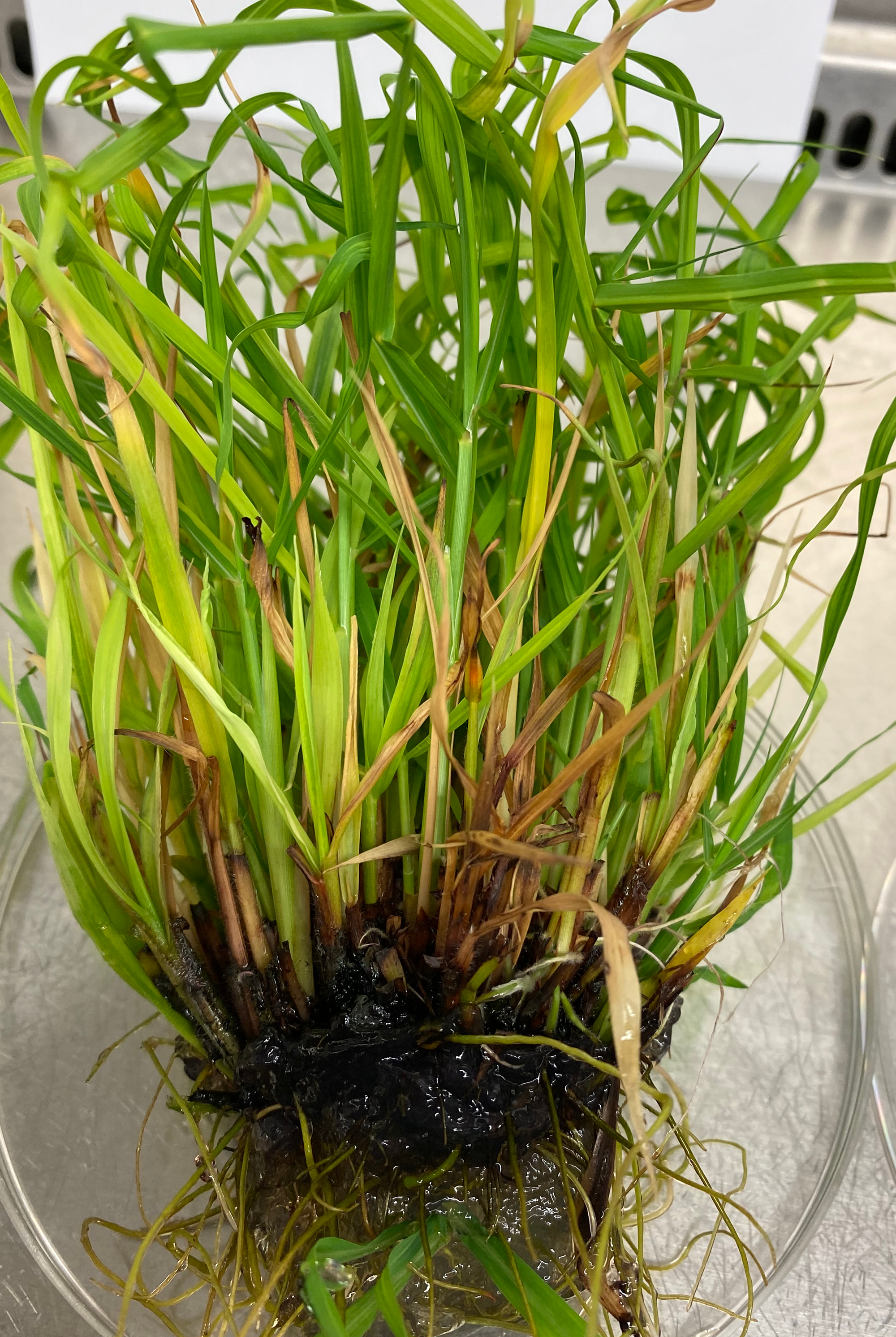
Above: A patented micropropagation technology to address the multiplication problem of Miscanthus x giganteus, a dedicated feedstock for bioethanol and high-value chemical production.
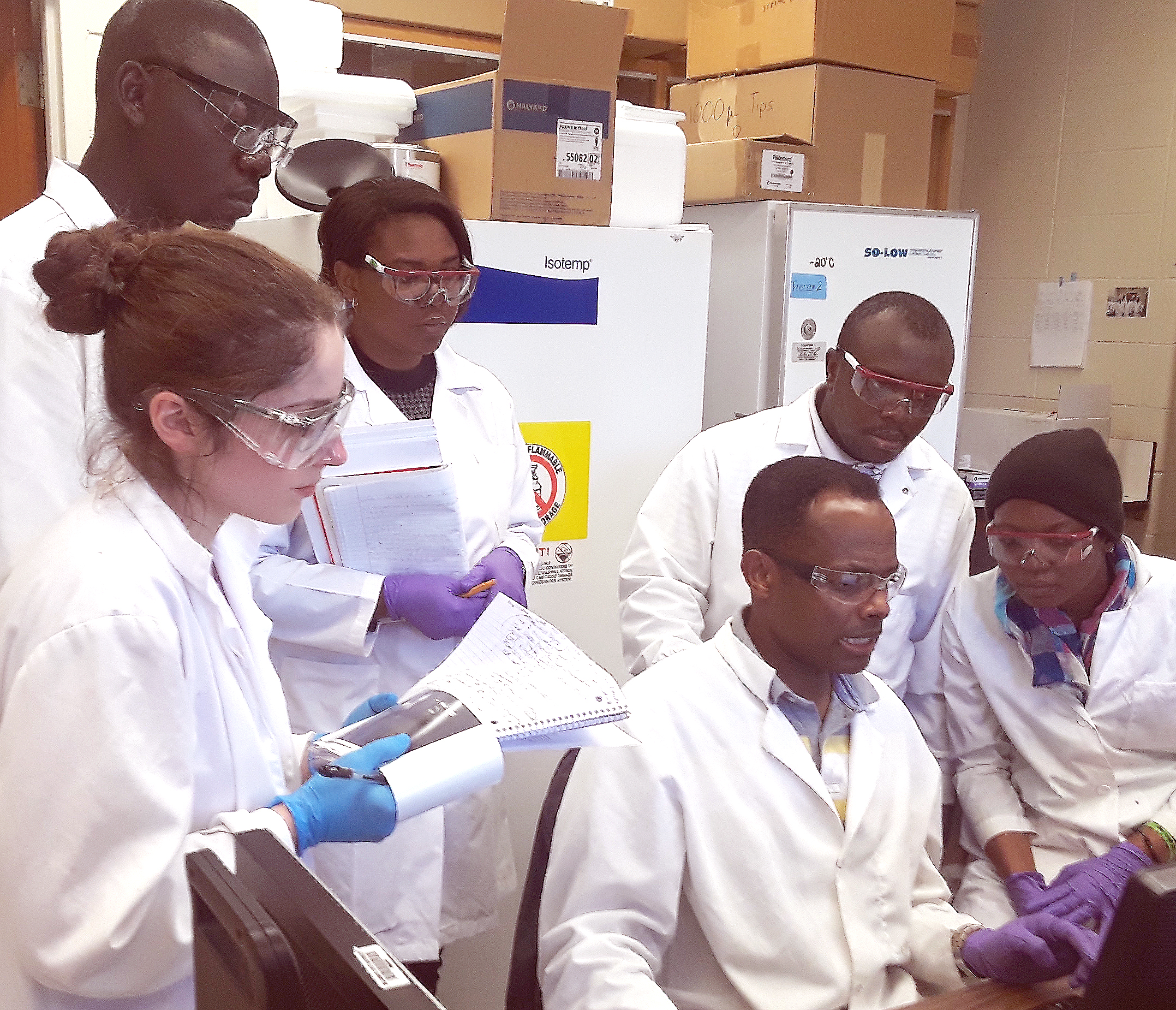
Students and Dr. Ayalew Osena, postdoc, review data in the Food Biotechnology Lab.

